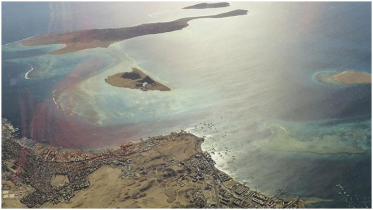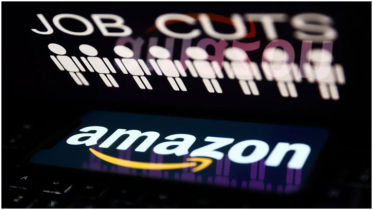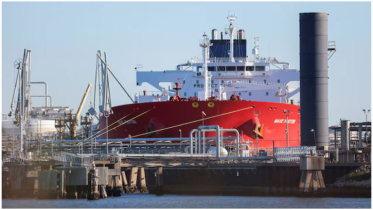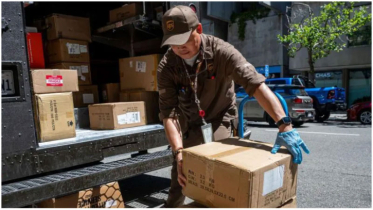Trump praises Canada's Carney as trade talks end without tariff breakthrough
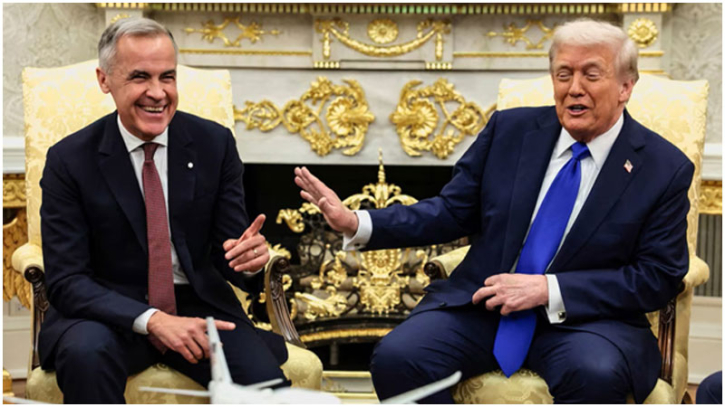
U.S. President Donald Trump struck a friendly tone during talks with Canadian Prime Minister Mark Carney at the White House on Tuesday, saying Carney would be “very happy” with their discussions — even as no concrete progress was made on lifting U.S. tariffs.
Speaking from the Oval Office, Trump hailed Carney as a “world-class leader” and “a nice man who can also be very nasty,” while noting that “natural conflict” between the two economies remained.
Carney, under pressure at home to secure relief from U.S. trade barriers, left Washington without any firm pledges from the U.S. president. “I think they’re going to walk away very happy,” Trump told reporters. Carney later said he was confident Canada would “get the right deal” with its largest trading partner.
The two leaders shared several lighthearted moments, including Trump joking about a “Canadian merger” — a reference to his past quip that Canada should become the 51st U.S. state. But behind the humor, serious disagreements persisted over tariffs on lumber, aluminum, steel, and automobiles.
Just a day before the meeting, Trump announced new 25% tariffs on imported heavy trucks beginning November 1.
A statement from Carney after the visit indicated limited progress, saying only that both sides had recognized “areas for competition and others where they could work together.”
Domestic pressure mounts on Carney
Carney, 60, entered politics less than a year ago after a long career in central banking, pitching himself as a crisis manager capable of dealing with Trump’s trade threats. Yet critics at home accused him of making too many concessions to Washington without getting results.
Canada’s GDP fell 1.5% in the second quarter, and with 75% of its exports heading to the U.S., pressure on Carney to deliver has intensified. The United States-Mexico-Canada Agreement (USMCA) still protects most trade between the two countries, but Trump has called for revisions when it comes up for renegotiation.
Ahead of the visit, opposition leader Pierre Poilievre warned Carney against returning with “excuses, broken promises and photo ops,” saying such an outcome would “fail our workers, our businesses, and our country.”
Carney has already faced backlash for canceling a proposed digital services tax targeting U.S. tech giants after Trump called it “outrageous,” and for lifting several tariffs imposed by the previous Canadian government.
“Mark Carney has no choice — he must return from Washington with progress,” said Daniel Béland, a political scientist at McGill University, noting that steel and aluminum tariffs remain major sticking points.
Still, Carney appeared to navigate the diplomatic encounter smoothly — a notable achievement given past difficulties for visiting leaders. “These meetings can easily go off track, and everything plays out publicly,” said Geneviève Tellier, a professor at the University of Ottawa.
For now, the tone between Washington and Ottawa may have warmed — but the substance of their trade relationship remains largely unchanged.
.png)

